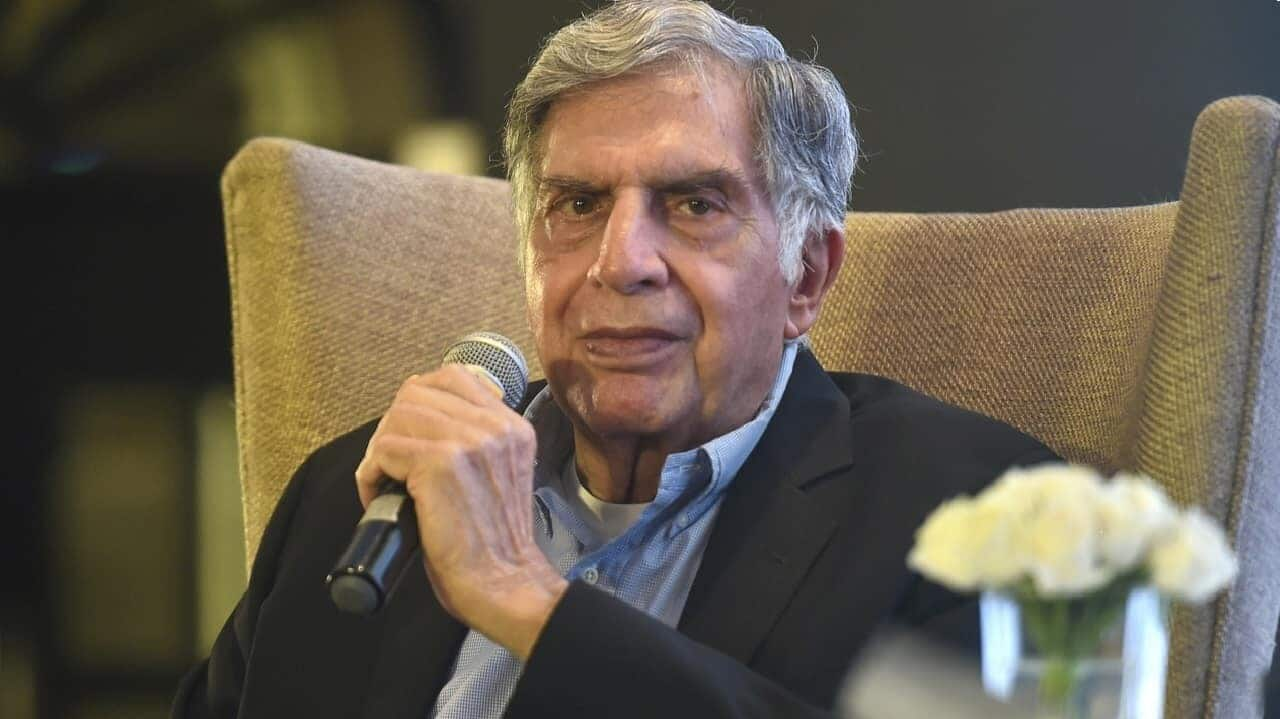
How Ratan Tata's leadership transformed Tata Group into global powerhouse
What's the story
Ratan Tata, who was the Chairman of Tata Sons from 1991 to 2012, is credited with turning the Tata Group into a global conglomerate.
Under his leadership, the group's revenues jumped from around ₹18,000 crore to ₹5.5 lakh crore.
The market capitalization also witnessed a massive jump from around ₹30,000 crore to ₹5 lakh crore during this time.
Strategic growth
Tata's strategic decisions fueled market cap growth
When Tata took over, he had a mixed bag of over 95 companies to deal with. The companies were working independently in sectors ranging from chemicals, hotels, salt, software, steel, soaps and watches.
One of his first priorities was to restructure and consolidate the group by streamlining operations and imposing a single corporate identity across its subsidiaries.
Visionary transformation
Tata's vision transformed group into integrated business house
The liberalization of the Indian economy in 1991, when Tata was appointed chairman, changed the course of India's industrial landscape.
Understanding the need for innovation and global competitiveness, Tata ensured that the conglomerate benefited from foreign investments and partnerships.
He also collaborated with multinationals and set up several high-tech ventures in telecom, oil and gas, IT among others.
Global expansion
Tata's global expansion strategy included key acquisitions
Tata also spearheaded the Tata Group's metamorphosis from an India-centric company to a global giant.
This was seen in some of the group's landmark acquisitions like British luxury car brands Jaguar and Land Rover by Tata Motors in 2008, and Tetley by Tata Global Beverages in 2000.
These acquisitions made the group a formidable player in the global automotive market and tea industry, respectively.
In 1983, Tata launched the everyday household salt brand—Tata Salt, India's first national branded salt.
Leadership ethos
Tata's leadership style prioritized professional management
Tata also stressed the need for strong leadership and professional management in the group's companies.
He appointed managers on the basis of merit and expertise, like Cyrus Mistry for Tata Sons and S Ramadorai for Tata Consultancy Services (TCS).
This way, each entity could shine in its own market while contributing to the overall growth of the conglomerate.
Strategic acquisitions
Tata's strategic acquisitions boosted group's market cap
Under Tata's leadership, the group made several high-profile global acquisitions that diversified its portfolio and boosted its market capitalization significantly.
Notably, Tata Steel's purchase of Corus and Tata Motors's acquisition of Jaguar Land Rover (JLR) were among the most high-profile acquisitions.
These strategic moves played a key role in boosting the group's overall market value.
Air India
Tata Group's acquisition of Air India in 2022
In 1986, Tata assumed the role of Chairman of Air India, India's prestigious national airline at the time. He held this position until 1989.
A decade after Tata stepped down as acting Chairman of Tata Sons, the Tata Group welcomed Air India back into the family.
The group acquired the airline from the Indian government for a whopping ₹18,000 crore in 2022.